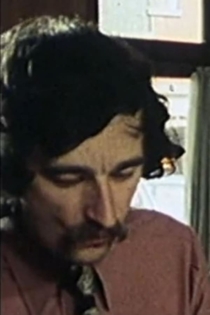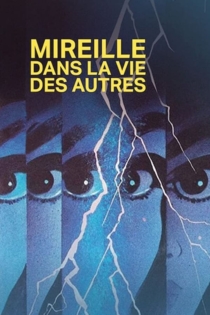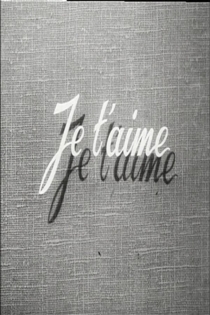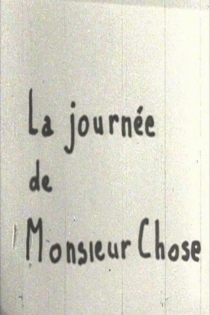
Jean-Marie Buchet
2021Mes entretiens filmés
Boris Lehman
François Albéra, Jean-Marie Buchet
This distinctly personal journey into the artistic possibilities of independent film is not to be missed. Jonas Mekas, Jean-Pierre Gorin, Robert Kramer and many other visionaries and mavericks of the silver screen – as well as a book seller, a critic and a psychoanalyst – discuss what cinema has meant to them, what it is and what it could be and, implicitly, how it has changed over the 18 years in which this film was shot. Director Boris Lehman leads the charge, drawing in moments of absurdist humour and inventive camera work; he keeps things raw and spontaneous. His encounters with the now much-missed Jean Rouch and Stephen Dwoskin are particularly touching and stand testament to their personal playfulness and candour. An engaging, absorbing, epic odyssey of a movie.
My Conversations on Film
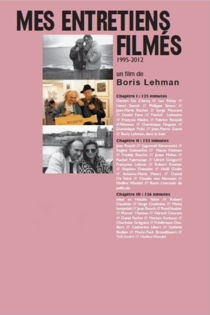
Jean-Gina B.
Pierre De Clercq, Jean-Pol Ferbus
Jean Bella, Béatrice Camurat
This film is based on the true story of Jean Bella, who served as an officer in the Belgian Marine while being convinced, from an early age, that he was in fact a woman. Director Jean-Pol Ferbus follows Jean Bella and makes him talk about his life, psychological and spiritual experiences and reveals the true poet who remained undisclosed for most of this person's life. The film ultimately isn't about transexuality but about loneliness one can experience when he/she feels very deeply that she/he belongs to the two sexes and this in a deep, almost religious, fashion, to such an extent that sexuality itself is being erased from one's life. Jean-Gina Bella is a woman in the body of a man who bravely lived a life on the sea, eventually fighting the elements, talking to God when lost on the immense solitary ocean. This testimony is a very touching and poetic one.
Jean-Gina B.
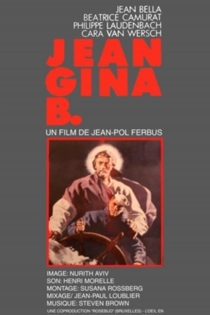
Vivement ce soir
Patrick Van Antwerpen
Marco Badot, Jean-Marie Buchet
The film records a day in a supermarket in the Brussels region. The story of this day's little events, both comic and touching, provides the general framework of the film. The situations which are conveyed through an accumulation of quick, light touches, highlight some of the ways we behave in connection with food, the repetitive element in our gestures and movements in this everyday, enclosed world which is so familiar. The film is based on the observation of a supermarket and the people who shop or work there. More and more of their various personalities emerge in the course of the day. They all have their importance: we get to know them from the outside, like people in a group photo where each has his own place. All these individuals cross each other's paths, meet each other, bump into each other again and fill in the framework of the film with a many-sided tableau.
Vivement ce soir
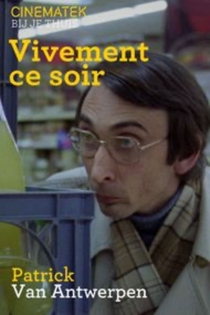
Potemkine 3
Jean-Marie Buchet
Marianne Balette, Robbe De Hert
Recovering all of the intertitles of the Battleship Potemkin, Jean-Marie Buchet substitutes for the images of the film various views that he himself shot and which are unrelated to the initial work, thus joining the technique of diversion widely recommended and applied by the Situationists.
Potemkine 3
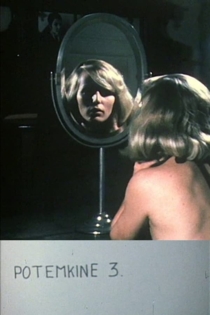
La Fugue de Suzanne
Jean-Marie Buchet
Suzanne has had enough of her boyfriend Albert. The drama unfolds in fifteen tableaux, in which she goes over to Albert’s friend Emile. Still, these romantic worries go hand in hand with insatiable boredom… La fugue de Suzanne is a rare gem in Belgian film history. Self-financed by the director, it creates an absurdistic reality with minimal cinematic gestures. “Jean-Marie Buchet is Bresson or Duras as seen by Henri Rousseau. He is our very own Eustache, stripped from his Parisianism.” (Boris Lehman).
La Fugue de Suzanne
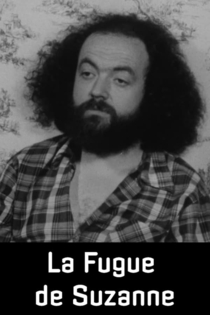
Que peut-on bien faire chez soi le dimanche après-midi quand on n'a pas la télévision ?
Jean-Marie Buchet, Jean-Marie Buchet
This short-film depicts the life of a couple with nothing to do and that has no TV, on a sunday afternoon.
Que peut-on bien faire chez soi le dimanche après-midi quand on n'a pas la télévision ?

